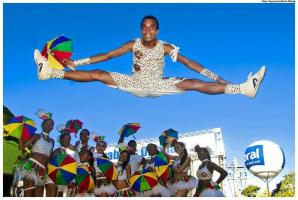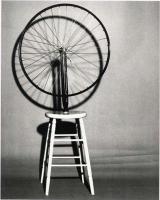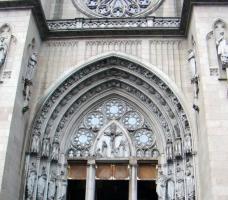Poem Dame la mano by Gabriela Mistral: analysis and meaning
give me your hand it is a poem framed in the book Tenderness, second collection of poems by the writer, a work that aims not only to entertain and educate children, but also to alert adults about their responsibility in the education of the little ones.
Through a simple and direct language, this poem invites us to put conflicts aside and take love as the only way that makes us free and equal.
give me your hand
Give me your hand and we will dance;
give me your hand and you will love me.
As a single flower we will be,
like a flower, and nothing else ...
The same verse we will sing,
at the same step you will dance.
We will undulate like a spike,
like a spike, and nothing else.
Your name is Rosa and I am Esperanza;
but your name you will forget,
because we will be a dance
on the hill and nothing else ...
Analysis
The main theme of this poem is love. Through elements of nature, the author tries to summon us to dance a “dance” that unites us in a fraternal way. Love understood, even, as an indication of world peace and, ultimately, as the only thing that can save us.
It is made up of three stanzas with twelve hendecasyllable verses where the consonant rhyme prevails.
One of the main characteristics of this poem is its visual character, thanks to a simple language that exposes the ideas clearly and refers directly to elements of nature, such as "flowers", "ears" or "Hills".
Speaker and lyrical object of the poem
The educational intention of this collection of poems makes us think of the figure of a pedagogue or teacher and, even, a mother as the main lyrical speaker in the poem. give me your hand.
A song that invites the lyrical object, in this case it could be a child or even an adult. The peculiarity of Mistral's poetry and its reflective character on society and cultural diversity, makes any reader identify with and want to participate in the game that he proposes.
We are all one

Although Mistral in this poem addresses a specific "you", collective reading is possible.
Thus we can understand the first verse as a call to the union of all human beings to the same "dance". Understanding this as a movement that claims world peace, the cohesion of people, without distinction of ethnicity or race.
An invitation that he makes through anaphora in the first two verses and that he intends to unite all human beings in the next two verses, through the resource of comparison.
Give me your hand and we will dance;
give me your hand and you will love me.
As a single flower we will be,
like a flower, and nothing else ...
"Like a single flower", we are all one. In this "game" that the writer establishes, we will all dance, with joined hands, and we will be like petals that make up a single flower.
Thus, this brief children's round, in reality, is a hymn to solidarity and equality.
Nature as the protagonist of poetic language
The elements of nature are very present in the poem and play a very important role in providing rhythm and sound to the language.
The same verse we will sing,
at the same step you will dance.
We will undulate like a spike,
like a spike, and nothing else.
In this stanza we find the metaphor of the dance in the wiggling of the landscape elements, in this case the spikes.
In turn, this verse transmits unity and harmony, as well as the ears of wheat undulate very close in the fields and give the feeling of unanimity from afar, if we join hands and dance at the same pace we will also be one entity.
Likewise, the inclusion of these elements indicates that Mistral also intends to unite the human being with nature. Through his words, he establishes a deep-rooted connection between man and the earth. The earth as the genesis and root of all species.
Love is the engine of the world
Rosa and Esperanza are common female names. The rose is also a very present flower in poetry. Hope is "a state of mind that arises when what is desired is presented as achievable."
With the choice of these names Mistral maintains the allusion to nature by using the name Rosa and, On the other hand, Esperanza represents that virtue that the human being must not lose if he wishes to achieve his objectives. In this case, harmony between human beings will only be achieved if we follow the path of love.
However, these names also promote free love, without distinction of sex or race. In this sense Rosa and Esperanza can also be two women who love each other.
Your name is Rosa and I am Esperanza;
but your name you will forget,
because we will be a dance
on the hill and nothing else ...
Gabriela Mistral's poetry has the ability to make us reflect on reality, from the common problems of society to the individual “I”.
This poem teaches us that love is the engine of the world and that only through it will we be able to unify, without distinction, and coexist in peace.
Biography

Lucila de María del Perpetuo Socorro Godoy Alcayaga (1889-1957) was the name she hid under the pseudonym Gabriela Mistral.
She was born in Vicuña, Chile, and was a poet, educator, diplomat, and one of the most influential writers in Spanish-American literature.
She was abandoned by her father when she was little, however, it was he who instilled in her her love of poetry.
During her life, she devoted herself to teaching and traveled to different countries to train children in poverty through reading and writing.
Thus, she combined her passion for pedagogy with that of poetry and in 1945 she became the first Latin American to win the Nobel Prize for literature.
If you liked this poem, you can also read Poem Kisses by Gabriela Mistral Y Gabriela Mistral: 6 fundamental poems



